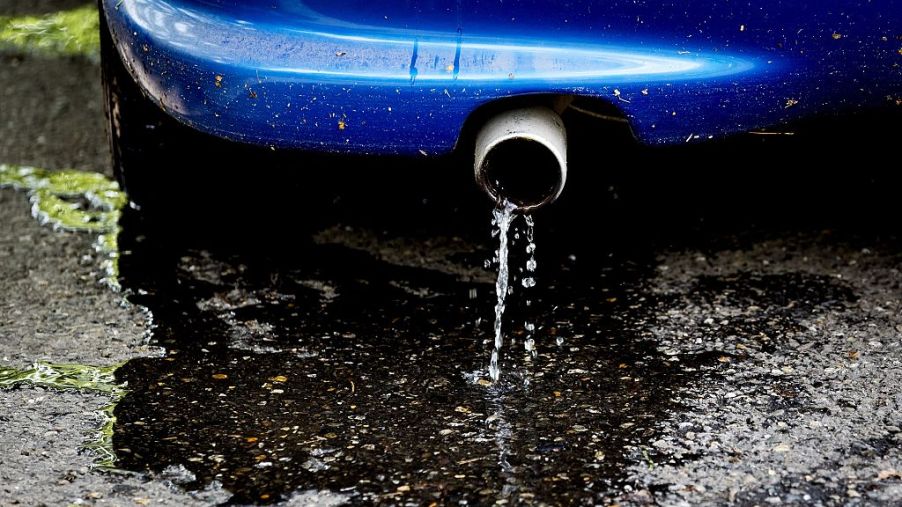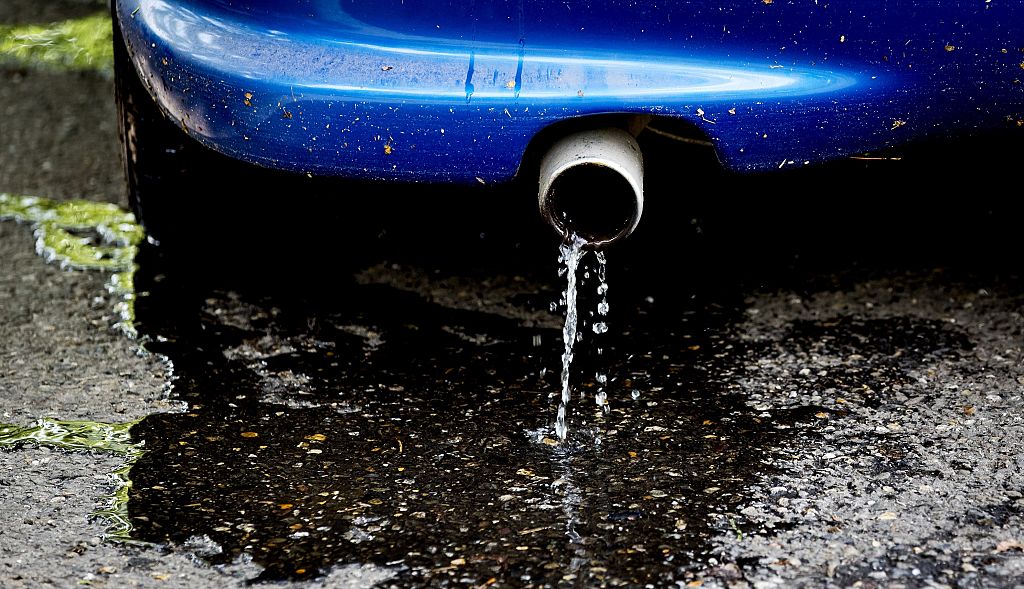
Should I Be Worried About the Water Coming From My Car Exhaust?
Cars have an interesting relationship with water. Standing water, combined with road salt, leads to rust. And depending on where you live, rainwater can even cause paint damage. But we also need water to keep cars clean and prevent other kinds of damage. And water mixed with antifreeze helps keep modern engines cool. But it can be disconcerting to see water coming from your car’s exhaust pipes. Especially if you haven’t been driving it in some time. But is this something you should be worried about?
Car exhausts do normally emit some water

While it is true that gasoline, especially if it’s been sitting for some time, can be contaminated with water. And if that happens, that can cause engine damage. However, as Advanced Auto Parts explains, it’s totally normal for you to see a bit of water dripping from your car’s exhaust.
For a gasoline or diesel car to work, it has to ignite fuel in the presence of air. Specifically, reacting the gasoline or diesel, which is a hydrocarbon, with oxygen. This produces CO2 as well as H20—aka water vapor. The water vapor that’s really hot doesn’t actually look like steam or vapor; it’s invisible.
But, if your car’s been shut off for some time, the hot exhaust gases have had time to cool. So, the vapor condenses into liquid water. Then, when you turn the engine on again, it gets pushed out of the tailpipe. Also, Mechanic Base reports a car engine is particularly hot when it’s first turned on before oil and coolant have had time to circulate. If it’s particularly cold outside, these extra-hot exhaust gases can look like steam, or even condense somewhat into water.
In addition, your catalytic converter also produces water as it does its job. The combustion process unwanted side-products like carbon monoxide, NOx, and potentially SOx; aka smog. Converting the carbon monoxide and smog into less-harmful emissions creates water vapor.
However, while a little water coming from your car exhaust isn’t a problem, a lot of water is another story.
Excessive water and smoke signal a problem
If you’re noticing that, even after you’ve been driving your car for some time, the water’s still coming out its exhaust, there’s something wrong with your car. White exhaust smoke, with a sweet odor in the air, means your engine’s burning coolant, It Still Runs reports. There are several potential causes for this.
One possibility is a head gasket leak, It Still Runs reports. The head gasket is what separates the engine’s combustion chambers from oil, coolant, and contaminants. Because it is a physical seal, over time the gasket can fail. Or, if the engine overheats, for example, if the water pump fails, the head gasket can fail along with it. Luckily, this is a fairly simple and inexpensive fix.
A coolant leak, though, can have more severe causes. It’s possible a cylinder or the engine block itself is cracked. If that’s the case, it’s possible to run a compression test on each cylinder. If the results are too low, there’s a crack somewhere. While it can be repaired, often times this means you’ll need a new engine.
Whitish smoke and water, though, aren’t the only things that can come out of your car exhaust.
What else your car exhaust can tell you
Black smoke, Car Throttle explains, is a sign of unburned fuel. This can be caused by a blocked fuel injector, faulty oxygen or air-flow sensor, or a broken fuel pressure regulator. A sufficiently-dirty air filter can also introduce contaminants, which interfere with the combustion process. And, of course, there are the coal-rollers, who deliberately aim to do this with their diesel trucks.
Bluish or blue-black smoke, though, signals an oil leak. This can be caused by damaged piston rings, which normally seal the piston head against the cylinder wall. But, if they’re worn down enough, the oil lubricating the wall can seep into the combustion chamber and burn. Damaged valves or vale seals can also leak oil.
But if the only thing coming out of your car exhaust is a bit of water, you’re in the clear.
Follow more updates from MotorBiscuit on our Facebook page.


